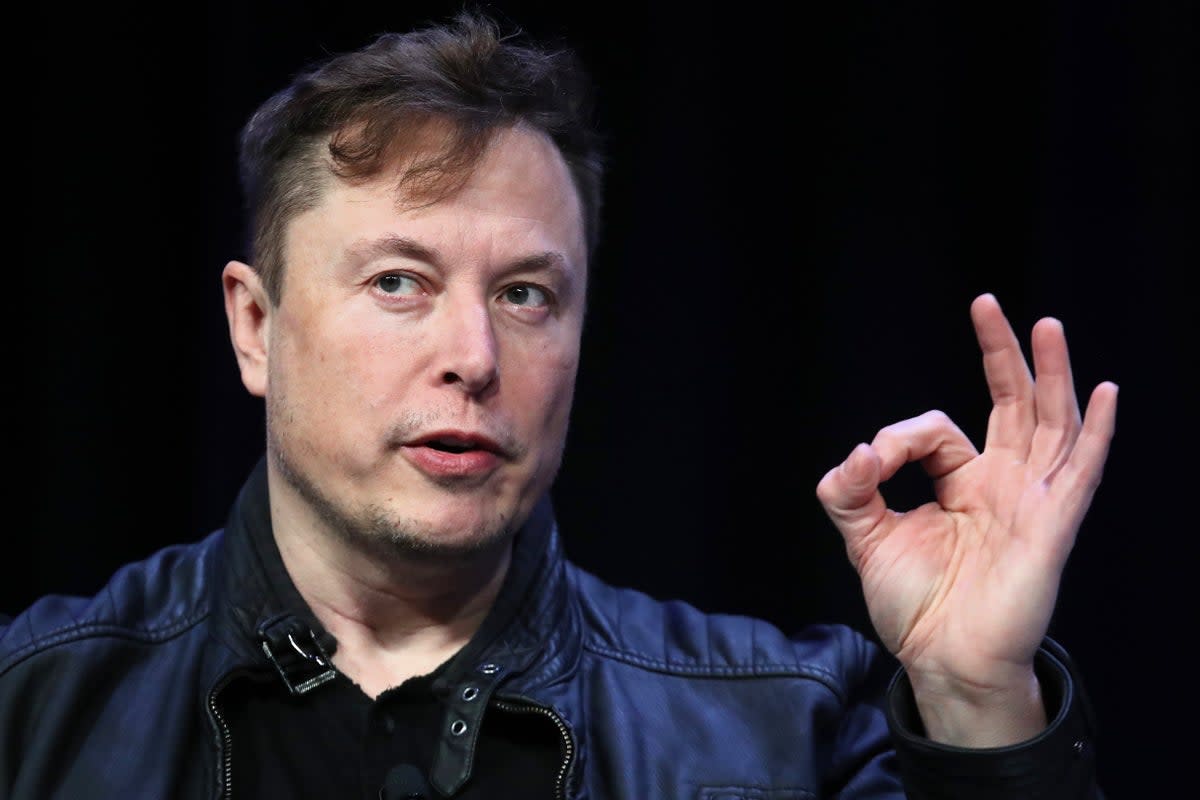Elon Musk’s threat to ban iPhones is fact checked by his own company

Elon Musk has threatened to ban Apple devices from his companies, though his fears appear to stem from a misunderstanding about the iPhone maker’s recently announced partnership with ChatGPT creator OpenAI.
The tech billionaire – who owns or heads Neuralink, SpaceX, Tesla, The Boring Company and X – claimed on Monday that Apple’s decision to integrate OpenAI technology into its iPhones and iPads was an “unacceptable security violation”.
In a post to X (formerly Twitter), he added: “Visitors will have to check their Apple devices at the door, where they will be stored in a Faraday cage.”
He also referred to the partnership as “extremely concerning”, though some of his comments on X were flagged for “misrepresenting what was actually announced”.
His comments came less than two hours after Apple unveiled a host of new artificial intelligence features – which it referred to as “Apple Intelligence” – at its annual Worldwide Developers Conference (WWDC) in California. A separate announcement revealed an update to Apple’s virtual assistant Siri that will allow it to hand off some queries to OpenAI’s popular ChatGPT chatbot.
The new feature will be integrated into Apple’s operating system later this year, available within Siri as well as a new system called ‘Writing Tools’.
In joint announcements, Apple and OpenAI both stated that ChatGPT’s integration will involve strong privacy protections that would prevent personal data from being compromised and would include user consent options.
Apple claimed that it was “setting a new standard for privacy in AI”, hiring independent experts to inspect its code in order to verify that data from iPhone, iPad and Mac is sent and stored cryptographically to ensure security.
“Privacy protections are built in for users who access ChatGPT – their IP addresses are obscured, and OpenAI won’t store requests,” the tech giant said. “ChatGPT’s data-use policies apply for users who choose to connect their account.”
OpenAI echoed Apple in its announcement, stating that “privacy protections are built in when accessing ChatGPT within Siri and Writing Tools”, adding that “requests are not stored by OpenAI, and users’ IP addresses are obscured”.
Mr Musk continued to question the partnership between Apple and OpenAI in the hours following the WWDC keynote announcement, describing it as “extremely concerning” and engaging with those defending Apple’s privacy credentials.
“Apple using the words ‘protect your privacy’ while handing your data over to a third-party AI that they don’t understand and can’t themselves create is *not* protecting privacy at all,” he wrote on X in response to a post by popular YouTuber Marques Brownlee.
Mr Musk’s post was flagged by X’s content moderation system, which noted that his claim “misrepresents what was actually announced” by Apple.
“Apple Intelligence is Apple’s own creation, and ChatGPT is entirely separate, and controlled by the user,” the note stated.
Mr Brownlee also responded, writing that he had spoken to Apple boss Tim Cook, who said that no data is sent to OpenAI without explicit user permission.
Despite this, Mr Musk continued to claim that OpenAI would be syphoning off Apple user data through the ChatGPT functionality, sharing a meme illustrating the idea.
The entrepreneur also hinted that he was planning to build his own phone, writing that it was “not out of the question” that his social media firm would partner with Samsung to manufacture a privacy-focussed ‘X phone’.


